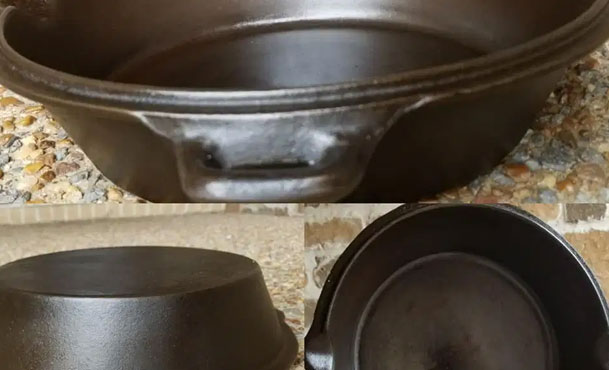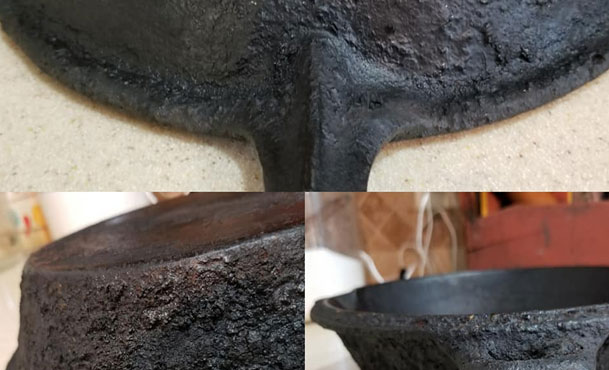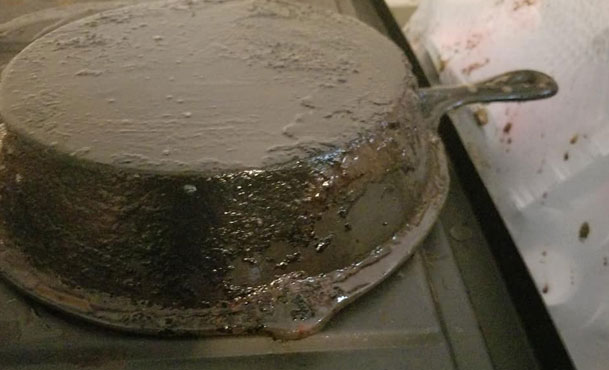
Lye tanks are one of the most common methods people use in the cast iron community to restore their cast iron, and one of the easiest. You can click here, for instructions on how to build your own lye bath.
After building a lye tank, there are a lot of questions people have about their lye bath and the upkeep.
Lye tanks generally work faster during summer months. The heat from the sun causes lye to work faster. During the winter months, lye has a tendency to work a little slower than normal. You can bring your lye bath in your garage or shed during the winter months. I have found that lye does freeze when the temperature is below freezing.
Lye does not go bad, however, if you use your lye tank several times in a year, you may need to add a little more lye. Sometimes the gunk in the tank can slow down the process of eating away old seasoning.
In some cases, your lye tank can become very thick and gross. Especially if you use your tank several times. A couple of weeks ago I had to throw out my lye bath because the thickness of the water was extremely thick after using it so many times.
If you find yourself stepping away from restoring a cast iron and no longer wanting to deal with a lye bath, you can toss the lye down the drain. This is the same active ingredient they use to unclog sludge buildup in sinks. I've also poured lye on poison ivy or oak plants and successfully killed the plant.

Lye tanks won't cause your pan to rust over while in the tank, unlike water. Your cast iron is perfectly safe.
There isn't a limited amount of time you can leave your pan in a lye bath. The tank is completely safe. I've left pans in the tanks for months and never had an issue with the pan.
A question I'm constantly asked about the use of a lye bath on cast ironware is if it will absorb into your pan. Cast iron is non-porous and does not have the ability to absorb like that of a sponge.
Lye can only be used for oil residue, dirt, and mold buildup. Lye will not get rid of rust buildup on cast iron.
When handling your lye bath, remember to use extreme caution and to always use rubber kitchen gloves, eye protection, and in a well-ventilated area. Lye is extremely caustic and should be handled with extreme caution.

